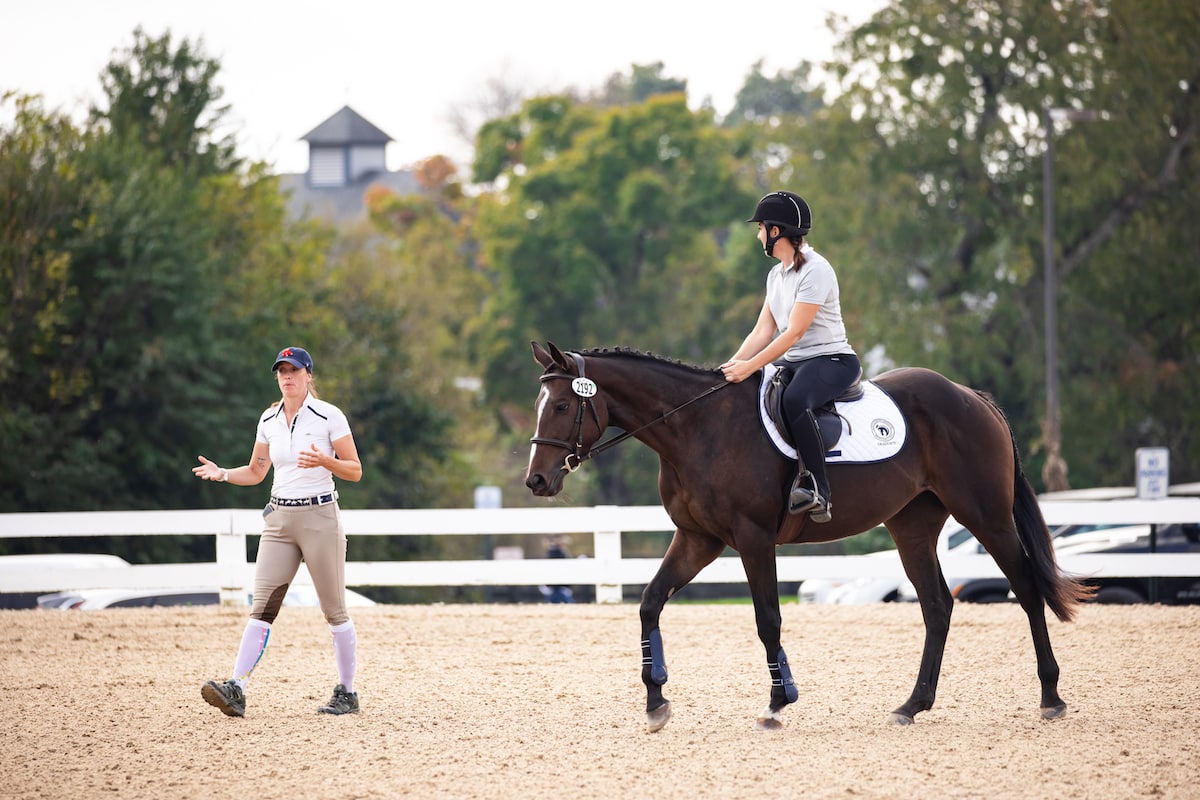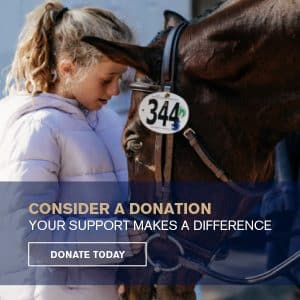
Bethany P Photography
While there’s nothing quite like transitioning a Thoroughbred to a new career after racing to challenge one’s horsemanship and training abilities, the reality is that equestrians often do a disservice to the horse when they approach that transition with a “DIY” attitude. However, enlisting the help of a good trainer — even if they never throw a leg over your horse — is one of the best things you can do when working with an OTTB!
Why work with a professional?
Especially if you’re a newcomer to the Thoroughbred breed, you’re likely to face a variety of challenges with an off-track restarting project: Thoroughbreds can take some time to adjust to the quieter pace of life at a private barn and their physical condition undergoes a massive change, not only in feeding regimen but in their way of going and self-carriage. Feet often need time to adjust to sport horse trimming and shoeing. And that’s not even getting into the training, which can present its own unique challenges as the horse learns different ways to take contact and accept aids.
Whether you’re sending your horse to a trainer’s facility for one-on-one riding time, or hiring the services of a coach to come to your farm and help you through the process, enlisting a professional to join your team will help you through rocky patches in that transition, provide a second set of eyes to help you make the most of your schooling time, and share their expertise for making the most of your new partnership.
Finding the right coach
If you don’t already work with a coach but want to start working with one friendly to Thoroughbreds, ask around your local equestrian community — Facebook can be a great resource for connecting with other equestrians in your area. Ask potential trainers/coaches if they’ve worked with Thoroughbreds before, or what they think of the breed, especially if you live in an area or ride in a discipline that doesn’t see a lot of OTTBs coming through.
Red flags with potential trainers or coaches might include a belief in stereotypes about OTTBs (they’re too hot/fast/reactive to make good sport horses) or a lack of continuing education with their own trainers or coaches. Professionals still take lessons too!
Isn’t it… well, cheating?
It is true that the “do it yourself” culture prevails in retraining OTTBs, but often to the horse’s detriment. As far as the Thoroughbred Makeover goes, Makeover rules allow for a horse to be sent out for professional training through July 31st prior to the competition; after this point, the entered trainer must be the primary rider.
There is no “unwritten rule” about seeking professional help — in fact, seeking professional assistance is encouraged!


